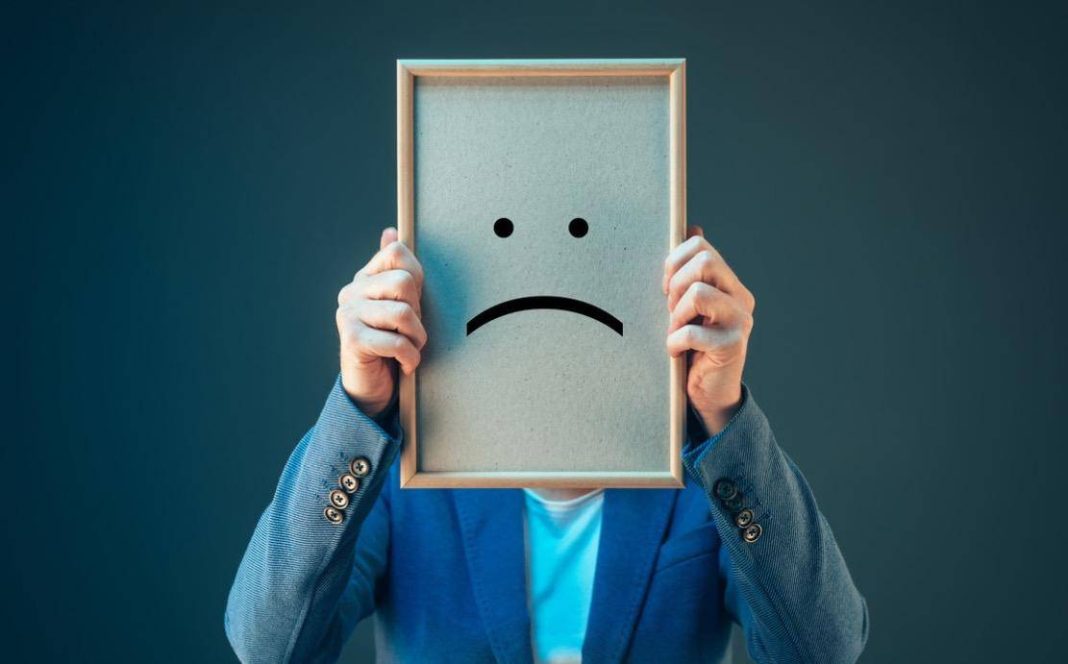In the lives of depressed patients, there are very few sunny days;
Instead, it’s mostly densely clouded, with emotional thunderstorms.
Mild depression:
Intermittent “gloom,” intermittent “dejectedness;”
This kind of depression can be self-healed;
A good meal, an act of love, a compliment, can all help soothe their emotions.
Anxious, long-term depressed state:
Emptiness, feeling life losing faith, lacking sunshine;
Helplessness, feeling unloved;
Anxiety, inside out, nothing to bring them happiness.
-01
People in long-term depression show these obvious behaviors
First: Resisting social interaction
Most of the time, they want to avoid social contact;
The more people around, the more anxious and unable to find peace they become.
In social situations, depressed individuals often experience a pressure of “paranoia.”
“There are always villains trying to harm me”
Highly sensitive emotions, strong perception of others’ emotions;
When others gossip, point fingers, or even insult someone, they internalize it.
Believing people around them have ill intentions;
In this terrible mindset, they only wish to stay away from social contact.
In other words:
When alone, although they may be lost in thoughts and feeling distressed;
Compared to the suffocating feeling in social interactions, they still prefer solitude.
Second: Strong feelings of inferiority, guilt
“It’s all my fault”
“Nobody likes me”
“Nobody needs me, I’m really terrible”
“I can’t do anything right, I’m so stupid”
Within the hearts of depressed individuals resides a strong, negative, dark persona.
This darkness veils the light of life, leaving only storm clouds.
Regardless of who they are with, they feel a strong sense of inferiority;
Self-doubt, self-criticism, self-suspicion;
A continuous, long-term self-PUA.
They also harbor significant feelings of guilt:
Feeling guilty for rejecting others;
Feeling guilty for not helping others;
Feeling guilty when someone else experiences any emotional fluctuation.
Third: Poor routines and sleep habits
Especially afraid of the quiet of the night.
Late nights are their most helpless, loneliest times;
All fears, tension, anxiety, and negativity surge during this time.
Like a non-swimmer sinking in the water;
Suffocation, suppression, the desire for life succumbs to despair.
Long-term depression prevents them from having a good, complete sleep state;
Poor sleep further exacerbates their internal struggles and depression.
-02
How can depressed individuals save themselves?
Depression exhibits two extreme states.
One is smiling depression:
To outsiders, they seem cheerful, optimistic, carefree;
Like a clown on stage, bringing joy to others while keeping sadness to themselves.
The other is negative-anxiety depression:
Standing with them, you feel the “low-pressure” emanating from them;
The oppressive, dark, anxious aura makes you tremble uncontrollably.
For those in long-term depression, what they least need is?
They don’t need to be preached to;
They don’t need advice on how to live;
They don’t need to hear “it’s okay.”
Every depressed individual has tried to struggle and change;
But in the end, they succumb to that “negative inner self.”
From a psychological perspective, how can depressed individuals self-heal?
First: Avoid self-analysis, instead build positive encouragement and gain a sense of achievement.
Second: Live with positive, optimistic, emotionally uplifting people.
Third: Seek companionship, live with joyful individuals.
Fourth: Engage in activities you enjoy to vent emotions.
Fifth: Switch roles, play different characters in life often.
Sixth: Try out non-competitive jobs that bring joy.
Seventh: When feeling uncomfortable, immediately stop and comfort your emotions.
How to determine if you are experiencing depression?
If the following behaviors occur frequently, it indicates you are in a state of depression.
1. Feeling inner emptiness, low self-worth
2. Strong feelings of inferiority, constant self-criticism
3. Lack of interest in anything
4. Always feeling tired, physically and mentally exhausted
5. Wanting to avoid all relationships, not wanting others to disturb you
6. Showing signs of anxiety, irritability, even negative thoughts
7. Unstable emotions, switching between crying, laughing, and feeling sad.


